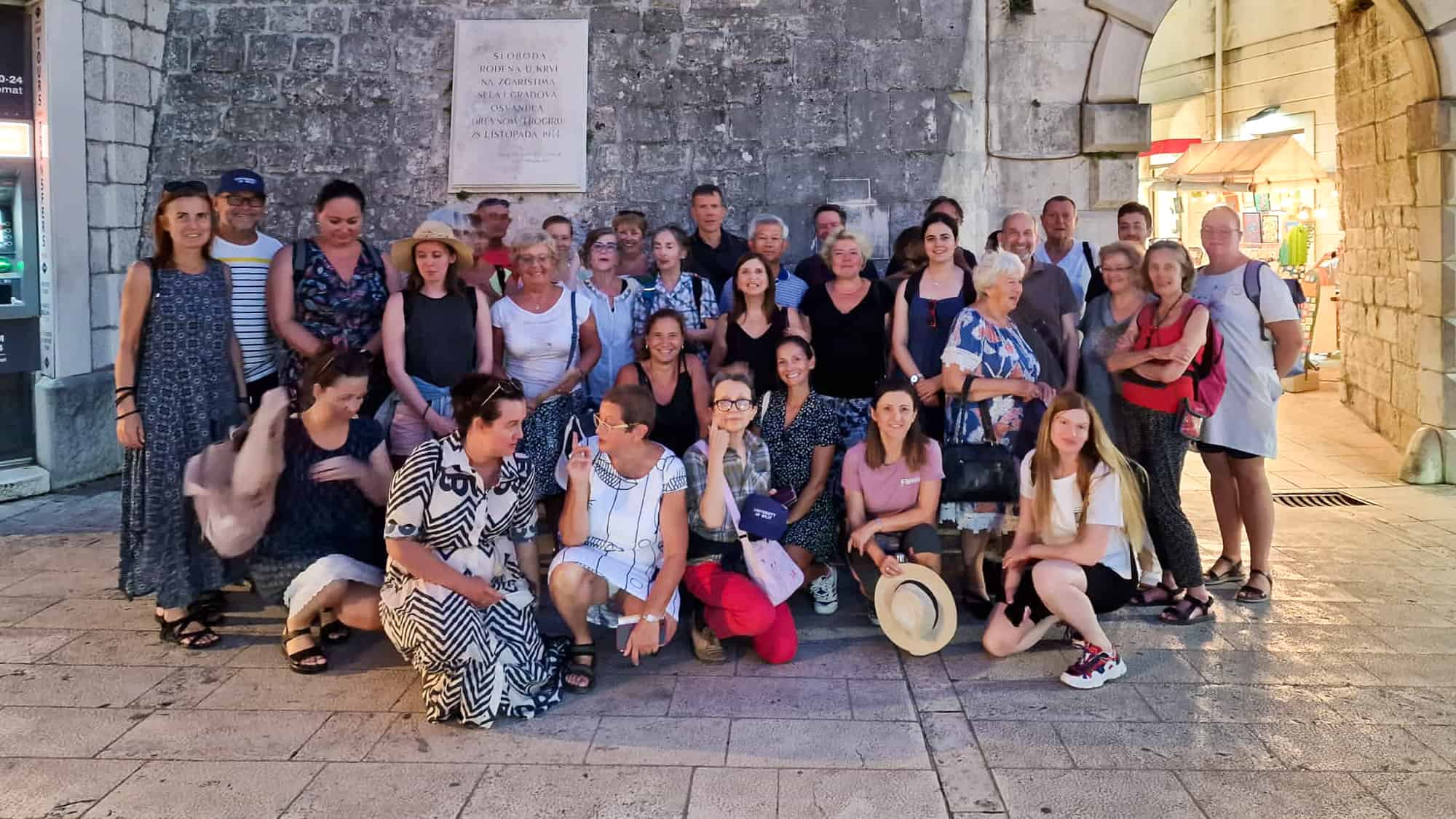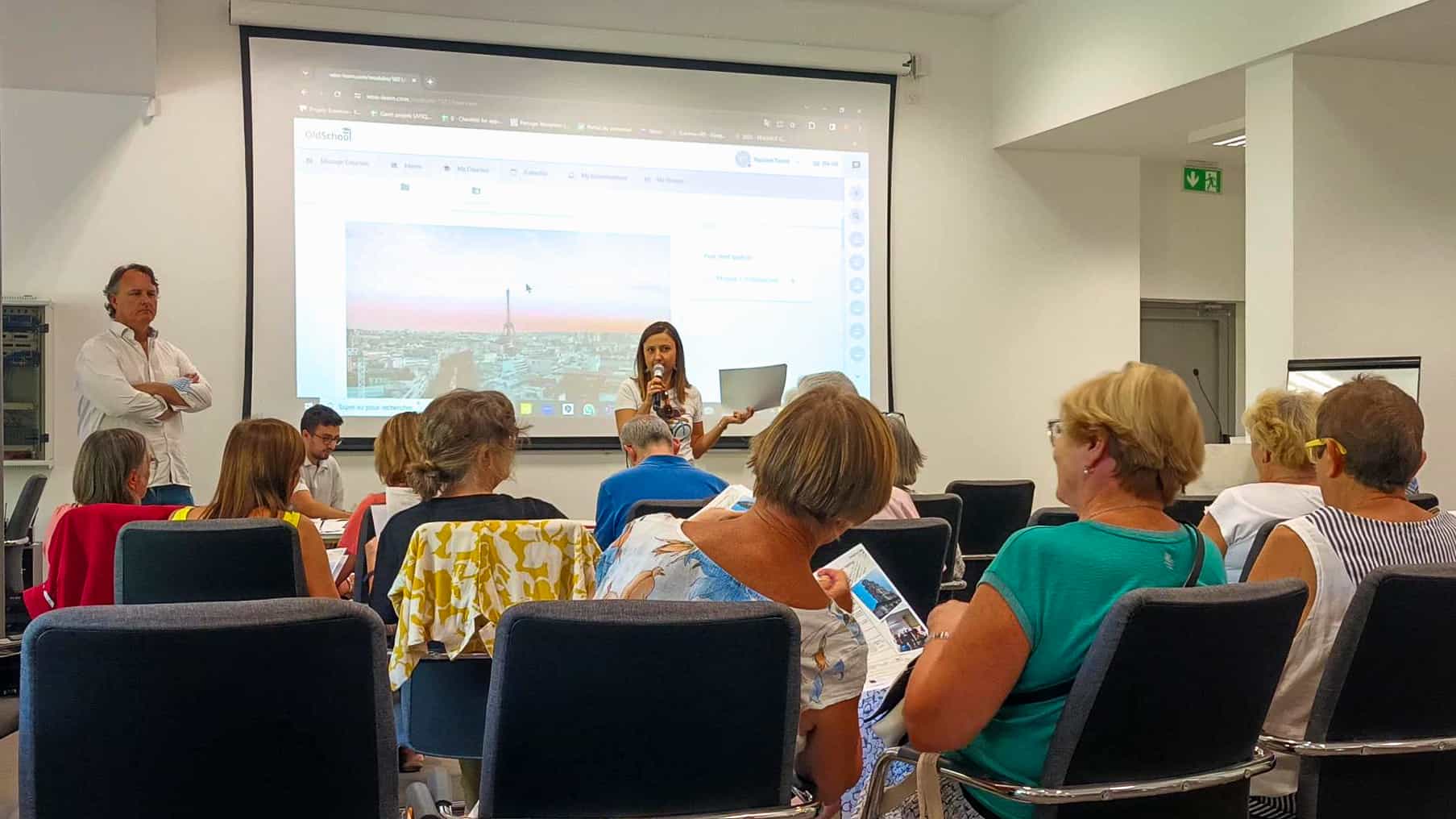Between September 4th and 8th, the University of Split in the coastal city of Split (Croatia) hosted the Learning, Teaching and Training (LTT) activity and Multiplier Event for the Erasmus+ 60 project. This project seeks to enable individuals aged 60 and above to access higher education opportunities, either through international learning experiences or through mobility and intergenerational learning.
During this week, up to 23 participants, all over the age of 60 from partner institutions within the project consortium, had the unique opportunity to test a range of online courses developed by project partners. These courses covered diverse topics such as permaculture, cultural diversity, travel literature and health tourism, critical thinking and exercises promoting healthy ageing and well-being. Participants delved into one of the course’s lessons and provided feedback, sharing their likes or dislikes, evaluating the accessibility and usability of the hosting platform.
Beyond testing the new courses, these learners participated in several cultural activities, such as a guided tour of the historical city center, an excursion to the nearby town of Trogdir and a tour of some of the facilities of the university’s faculty of maritime studies, which included its planetarium and nautical simulator.
At the Multiplier Event, the project unveiled its completed outputs to an audience of 80 individuals present in person and an additional 7 online participants. In addition, the event featured presentations on best practices in Intergenerational Learning (IGL) and Third Age Universities by Mendel University in Brno (Czechia) and ELTE University in Budapest (Hungary). Participants provided feedback on the LTT activity, actively contributing to its improvement.
Overall, participants left very satisfied, with many inquiring about the possibility of a repeat event. Their feedback underscored the project’s importance, expressing interest in promoting this form of learning. They gained valuable insights into senior education in other countries and found inspiration to pursue studies and social engagement. This event offered them the opportunity to explore new subjects, meet and interact with people from other countries, whilst going on a short-term mobility trip to a beautiful city where they not only delved into its history but also savoured its cuisine and culture.
Looking ahead, this project seeks to continue engaging the participants. This activity proved a genuine appetite for online learning among students aged 60 and above, emphasising the importance of exploring further opportunities and enhancements in this realm. It’s a compelling incentive to encourage the involvement of older learners in higher education and the Erasmus program, offering the promise of enriching experiences in the years to come.

Group picture with the participants of the LTT activity in Split

